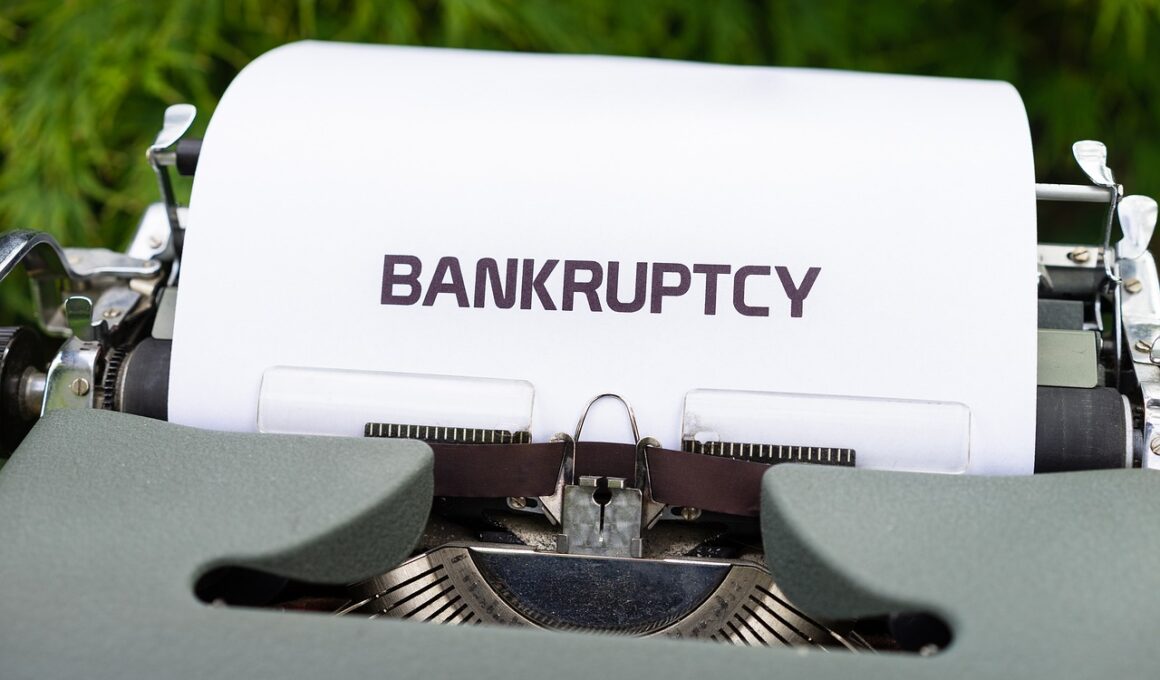Is Bankruptcy the Right Choice for You? FAQs
Bankruptcy can often feel like an overwhelming and daunting process. However, understanding its implications, benefits, and potential consequences can help you make an informed decision. One of the most commonly asked questions is, “Will bankruptcy eliminate all my debts?” The answer is nuanced; while it can discharge unsecured debts like credit card obligations or medical bills, some obligations might survive, such as student loans and certain tax debts. Another frequent concern is whether bankruptcy will affect your credit. It typically does impact your credit score negatively for a while; however, many individuals find that discharging their debts actually provides them with a chance to start fresh and rebuild their credit. Bankruptcy also poses questions regarding assets. If you file for bankruptcy, will you lose your home or car? Many states offer exemptions that allow you to keep certain essential properties. To weigh your options carefully, consider speaking with a bankruptcy attorney or financial advisor who can guide you through the intricacies of the path ahead and help clarify your choices, ensuring you are well-informed about this complex process.
Understanding the Types of Bankruptcy
Bankruptcy comes in various forms, specifically Chapter 7 and Chapter 13, each catering to distinct situations and needs. Chapter 7 is often referred to as liquidation bankruptcy and provides a fresh start by eliminating most unsecured debts. This type accelerates the process, usually wrapping up within three to six months. Nevertheless, it requires the individual to meet specific income criteria and involves the liquidation of non-exempt assets to repay creditors. Conversely, Chapter 13 facilitates a repayment plan for individuals who wish to keep their property while repaying debts over three to five years. This option is beneficial for those with a reliable income but overwhelming debt levels that exceed permissible limits in Chapter 7. The choice between these two types depends largely on your financial situation, the nature of your debts, and your personal goals. It’s crucial to assess your current financial landscape, consulting with a professional who can guide you to make the right choice. Know your eligibility and prepare for the implications each type carries. Understanding these differences is vital to navigating and successfully managing your bankruptcy journey.
When facing bankruptcy, many individuals ask whether they will lose their home. The short answer is: it depends on various factors, including the type of bankruptcy and your state’s exemption laws. In Chapter 7 bankruptcy, non-exempt assets may need to be liquidated to repay creditors. However, most states offer homestead exemptions, which can protect a significant amount of equity in your home. Thus, many individuals are able to keep their homes while discharging unsecured debts. In Chapter 13 bankruptcy, individuals can typically keep their homes while reorganizing their debts under a repayment plan. This allows you to catch up on mortgage arrears while maintaining ownership of your property. Furthermore, many families find relief in the fact that ongoing mortgage payments are generally manageable during this process. However, if you miss payments during or after bankruptcy proceedings, you still risk foreclosure. Understanding your state’s exemption laws and knowing your rights can provide significant comfort and clarity when facing this challenging decision. Engaging an experienced bankruptcy attorney will help outline your options and determine the best strategy to safeguard your home.
Impact of Bankruptcy on Credit Report
When contemplating bankruptcy, one significant concern is the effect it has on your credit report. Naturally, when filing for bankruptcy, a notation will appear on your credit report, potentially diminishing your credit score significantly. Chapter 7 bankruptcy is typically recorded for ten years, while Chapter 13 remains for seven years. However, this doesn’t mean financial recovery is impossible or out of reach. Many individuals experience a rebound in their scores post-bankruptcy as they become more budget-conscious and focused on rebuilding credit. After receiving a discharge, you can begin to rebuild your credit history; in fact, some lenders specialize in providing credit products to individuals who have filed for bankruptcy. To actively improve your credit post-bankruptcy, establish a secured credit card, ensure timely payments of bills, and monitor your credit reports for accuracy. Strategically managing your finances can lead to repairing your financial image over time, so don’t be discouraged. Stay informed about your rights and best practices to accelerate your recovery process efficiently, turning a new page toward financial stability that once felt out of reach.
Another critical aspect of bankruptcy revolves around the misconception that it will eliminate all financial burdens. While it can alleviate many debts, not all obligations are dischargeable. Debts such as alimony, child support, certain taxes, and most student loans are generally not wiped out through bankruptcy proceedings. This means that even after filing, you must continue to honor your obligations related to these debts. Moreover, bankruptcy does not provide immunity from secured debts like mortgages and car loans. If you wish to retain these assets, you need to stay current on your payments. It’s essential to evaluate your entire financial landscape before opting for bankruptcy. Sometimes, alternative solutions like debt management plans or settlement negotiations with creditors can be beneficial. Understanding what can and cannot be discharged in bankruptcy is vital to setting accurate expectations and achieving your long-term financial goals. Prioritize addressing your secured debts along with any non-dischargeable obligations to regain control of your finances effectively. Thus, conducting thorough research and seeking advice from legal professionals is crucial in navigating your options.
Alternatives to Bankruptcy
Investing time to explore alternatives to bankruptcy can be highly beneficial. Individuals facing overwhelming debt may first consider options like negotiating payment plans or settlements directly with their creditors. Many creditors prefer working out a plan rather than pursuing collection actions or lawsuits. Another option includes enrolling in a debt management program whereby a credit counseling agency helps consolidate your debts under a single lower interest payment. This can alleviate some of the pressure while avoiding bankruptcy altogether. Debt consolidation loans might also be a consideration, allowing you to pay off existing debts through a single loan with more favorable payment terms. If you’re considering whether bankruptcy is the right choice, weigh the alternatives first. Many individuals find these methods effective in managing and reducing their debt load without the detriments linked to a bankruptcy filing. However, understanding your situation fully is crucial because different paths can have different long-term impacts on your finances. Always consult with a financial professional familiar with your needs who can guide you in choosing the most favorable resolution for your financial well-being.
One of the major fears surrounding bankruptcy is the stigma associated with it. Many individuals believe that declaring bankruptcy reflects personal failure or irresponsibility. However, it’s essential to understand that bankruptcy can be a legitimate financial strategy for many facing insurmountable debts beyond their control. Various life events, such as job loss, divorce, or medical emergencies, often lead to overwhelming financial burdens. In this context, bankruptcy becomes a tool to regain financial footing rather than an indictment of one’s character. Public perception can sometimes be misleading, but the fact remains that millions have navigated these waters and emerged successfully. Education on bankruptcy allows for more compassionate viewpoints surrounding this financial decision. Realizing that you are not alone in this journey can foster resilience and comfort as you work toward overcoming these challenges. Keep in mind that seeking help from bankruptcy experts or support groups can further alleviate the burden and provide encouragement through the recovery process. There are resources available to assist you as you navigate the complexities of bankruptcy; leveraging them can be pivotal toward achieving your aspirations.
This lengthy process can bring pressure, confusion, and doubt; however, knowing what to expect may help ease some of these burdens. Consulting with a qualified bankruptcy attorney can provide clarity on the entire process, including filing fees, paperwork, and the timeline involved from start to finish. Every case varies in complexity, so it’s important to customize the approach that best fits your unique situation. Understanding the potential for future lawsuits or creditor collections while in bankruptcy becomes crucial. Moreover, keeping detailed records of your finances, debts, and payments will be instrumental in both your bankruptcy case and your recovery afterward. This preparation aids you in navigating discussions with creditors post-bankruptcy, expediting your financial restoration. You will also want to be vigilant about pre-filing education and advice from certified bankruptcy professionals, emphasizing the importance of following legal protocols and financial best practices throughout this process. Ultimately, ensuring that you adhere to specific regulations and timelines, while gathering pertinent documentation in advance, can lead to a smoother bankruptcy experience and bolster your ability to recover effectively.


